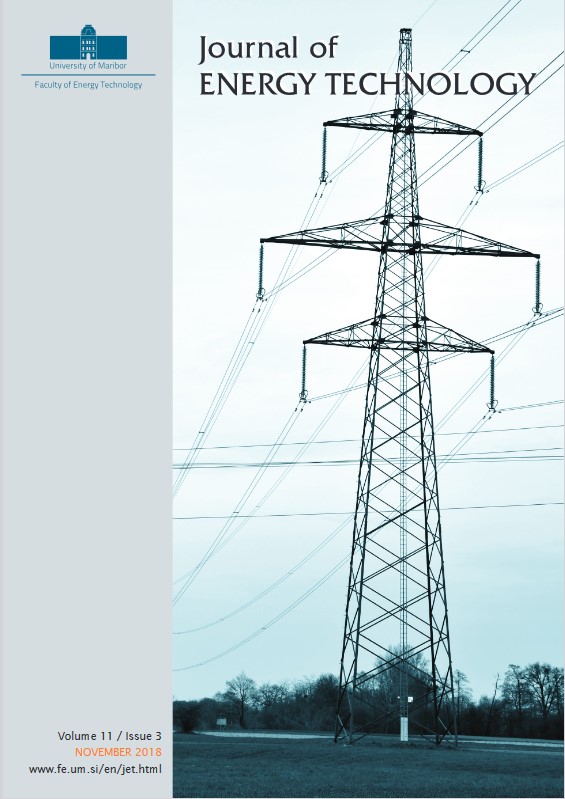THE EFFICIENCY OF MAGNETIC REFRIGERATION AND A COMPARISON WITH COMPRESSOR REFRIGERATION SYSTEMS
Abstract
The objective of this paper is to study the magnetic refrigeration process that makes use of solid materials, such as gadolinium silicon compounds, as the refrigerant. This effect was observed many years ago and was used for cooling to low temperatures. Recently, materials are being developed with which sufficient temperature and entropy change are produced which makes them useful for a wide range of refrigeration applications. Magnetic refrigeration is an emerging technology that utilizes this magnetocaloric effect found in a solid state to produce a refrigeration effect.
Downloads
References
Y. Kulkarni: A review on Magnetic Refrigeration at Room Temperature, International of Innovative Research in Science, Engineering and Technology, Vol. 4, Iss. 12, 2015
Q. Mary: Novel Thermodynamic Cycles involving Ferrofluids displaying Temporary Magnetic Remanence, School of Engineering and Material Science, p.p.69‐73, 2013
E. Gedic, M. Kaufeci, A. Kecebas, H. Kurt: Magnetic refrigeration technology applications on near‐room temperature, International Advanced Technologies Symposium Karabuk Turkey, 2009
U. Lucia: Exergy analysis of magnetic refrigeration, Spalto Marengo Alessandria, 2010
P. W. Egolf, A. Kitanovski, D. Vuarnoz, M. Diebold, C. Besson: An Introduction to magnetic refrigeration, Institute of Thermal Sciences, Switzerland CH 1401
Dr. Terry, J.Hendricks, Valerie H.Johnson, Matthew A.Keyser: Heat‐ Generated Cooling Opportunities, Center for Transportation Technologies and System, Colorado
V. K. Pecharsky, K. A.Gscheidner: Magnetocaloric Materials, Iowa State University, USA
A. Kitanovski, V. Plaznic, J. Tusek, A. Poredoš: New thermodynamic cycles for magnetic refrigeration, International Journal of refrigeration 37, ELSEVIER, 2014
N. Biswas, N. K.Hanna, P. Datta, P.S. Mahapatra: Analisys of heat transfer, Journal Power Technology, ELSEVIER, 2018
S. Labrosse: Thermal evolution of the core with a high thermal conductivity, Journal of Physics of the Earth and Planetary Interiors, 2012
J. Tusek, S. Zupan, I. Prebil, A. Poredos: Magnetic Cooling‐Development of Magnetic Refrigeration, Journal of Mechanical Engineering, Slovenia, 2009
Z.G.Zheng, Y.Yu, X.C.Zhong, D.C.Zeng, Z.W.Liu: Design and performance study of the active magnetic refrigerator for room‐temperature application, International Journal of refrigeration 32, 2009
A. Rowe, A. Tura, J. Dikeos and R. Chahineb: Near Room Temperature Magnetic Refrigeration, Proceedings of the International Green Energy Conference, Waterloo, Ontario, Canada, 2005
J. Avsec, U. Novosel: Control of air conditioning, 1st ed. Maribor: University of Maribor Press, 2017
M. Arnemann: Energy efficiency of Refrigeration System,Karlsruhe UAS Institute of Refrigeration, Air Conditioning and Environmental Enginering (IKKU) 76133, Karlsrache Germany
Bjørk, Rasmus; Smith, Anders; Bahl, Christian; Pryds, Nini: Determining the minimum mass and cost of a magnetic refrigerator, Technical Universy of Denmark 2011
System developed by Railway Institute for evaluation of performance of magnetic working materials
